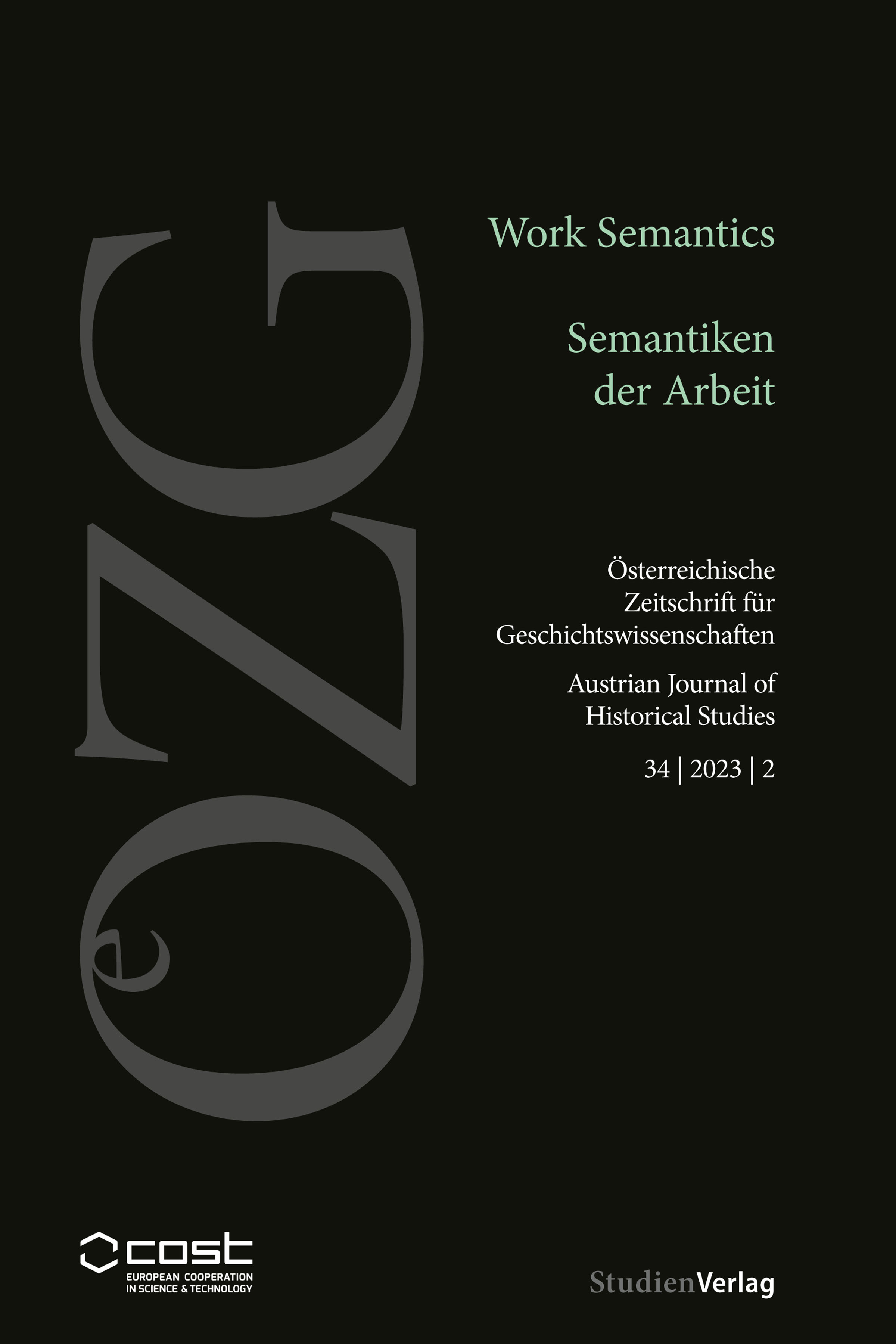Female Work Arrangements in the Datini Letters
Exploring the Semantic Roles and Negotiating Scopes of Servants, Slaves, and Wet Nurses
DOI:
https://doi.org/10.25365/oezg-2023-34-2-7Schlagworte:
Datini letters, late medieval Tuscany, history of labour, slavery studies, female labour, servitude, work arrangements, semantic rolesAbstract
In the letters preserved in the Datini archive, women could take the epistolary stage when it came to their (pre-)entry into a labour relation with the Datinis or their social network. The negotiating scope of women during these entries is the analytical focus of this paper; to negotiate and/or to be negotiated is the central question. Based on 53 letters from the years 1393–1398, four different search and recruitment processes for three different types of female workers – servants, slaves, and wet nurses – are comparatively examined by way of a historical semantic reading. Taking the verb-oriented method as a starting point, this study proposes two methodological extensions: an attribute-oriented method and an adaption of the semantic roles approach from linguistics. The paper argues that this historical semantic trio of methods can help to understand group-related and individual degrees of (non-)control over actions in the arrangement of labour relations in late medieval Tuscany by bringing positions of power to the epistolary surface.
Downloads
Veröffentlicht
Zitationsvorschlag
Ausgabe
Rubrik
Lizenz
Copyright (c) 2023 Österreichische Zeitschrift für Geschichtswissenschaften

Dieses Werk steht unter der Lizenz Creative Commons Namensnennung 4.0 International.


